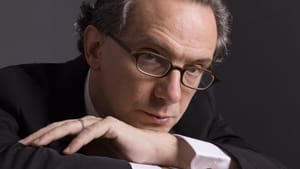Stay in the Loop
BSR publishes on a weekly schedule, with an email newsletter every Wednesday and Thursday morning. There’s no paywall, and subscribing is always free.
Fabulous Fabio
Philadelphia Orchestra's 'British Isles Festival, Week Three: Haydn and Beethoven' (first review)

An ecstatic performance of Haydn’s “London” symphony concluded the Philadelphia Orchestra’s British Isles Festival, where it shared a bill with works by Beethoven and Wagner. With music director Yannick Nézet-Séguin dispatched to New York for rehearsals of Parsifal at the Met, conducting duties fell to Fabio Luisi, who has fast become an audience favorite since his 2011 debut.
You couldn’t find a better choice to lead a program of German and Austrian composers. Though Genovese by birth, Luisi cut his teeth in Graz and Vienna and has deep ties to the German orchestral repertoire. Beyond his Teutonic bona fides, though, one senses Luisi can draw shimmering, textured magic from any score.
The sound of Philadelphia
No one else on the current conducting roster — not even Nézet-Séguin, really — matches Luisi’s ability to draw out the classic Philadelphia sound. It’s all there: the explosive, almost volatile strings; whispering woodwinds; supportive percussion. But where others may invoke this overwhelming style to mask a lack of insight, Luisi shows how the orchestra’s full forces can realize a composer’s true intentions.
Take the Haydn, for example. Luisi began his reading of the composer’s final symphony on familiar ground, performing the first movement at a mournful, deliberate pace. His individual stamp grew with each successive movement: the rondo-accentuated second truly sounded like a courtly dance, while the minuet-dominated third was a marvel of orchestral unity. The ebullient fourth movement practically burst out into the auditorium, but with no sense of sloppiness; this was controlled chaos, music under the watchful eye of a master.
The teeming, lushly colored strings played with such harmony they could have been mistaken for a single instrument. This sense of accord persisted throughout the Prelude and “Liebestod” from Wagner’s Tristan und Isolde, which closed the program. Few conductors can make the world-famous “Tristan chord” that opens the overture sound genuinely unsettling, but as the cellos answered Luisi’s downbeat, my pulse started to gallop.
This skittering suspense continued building as the five-hour opera’s opening and closing compositions were played in a single, unified arrangement. The “Liebestod” — literally “love-death” — musically and dramatically answers the expectations of the Prelude.
As the captive Irish princess Isolde confronts the lifeless body of her beloved Tristan, she dissociates from reality and achieves bliss. Luisi showed how Isolde’s rapture grows until the moment of her death, when the Prelude’s opening chord finally resolves. It is a moment of pure release.
Perfect pairing
Thematically, Beethoven’s Piano Concerto No. 3 in C Minor, Op. 37, was the program’s wild card, having no discernable connection to the United Kingdom. Perhaps it was selected to highlight the virtuosic technique of soloist Yefim Bronfman. Bronfman’s nimble fingers impressed throughout — particularly in the second movement, where pianist and orchestra find themselves in ongoing conversation.
But the success of the second movement once again served as a testament to Luisi, who underscored Bronfman with a subtle but forceful hand. Concertos for piano and orchestra sometimes lack balance; here, soloist and band played in perfect step.
Under Luisi’s baton, three repertory staples sounded as fresh and exciting as if they were written yesterday. Only a truly skilled and sensitive conductor can achieve such a feat. The orchestra should invite him as often as possible.
To read Linda Holt's review, click here.
What, When, Where
British Isles Festival, Week Three: Haydn and Beethoven. Fabio Luisi, conductor; Yefim Bronfman, piano. Franz Joseph Haydn, Symphony No. 104 in D Major (“London”); Ludwig van Beethoven, Piano Concerto No. 3 in C Minor, Op. 37; Richard Wagner, Prelude and “Liebestod” from Tristan und Isolde. Philadelphia Orchestra. January 24-26, 2018, at the Kimmel Center’s Verizon Hall, 300 S. Broad Street, Philadelphia. (215) 893-1999 or philorch.org.
Sign up for our newsletter
All of the week's new articles, all in one place. Sign up for the free weekly BSR newsletters, and don't miss a conversation.

 Cameron Kelsall
Cameron Kelsall